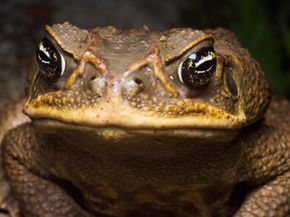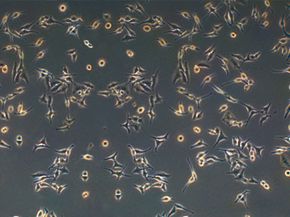Quck answer
Toads do not cause warts. Warts are caused by a virus called human papillomavirus (HPV) that is spread through direct contact with the virus. Toads have bumps on their skin that secrete a toxic substance as a defense mechanism, but this substance does not cause warts in humans. It is important to always practice good hygiene and avoid touching any open wounds or sores on a toad, as their secretions can be harmful.
Wild Animals

Australia is facing a major problem with giant cane toads, which were introduced in 1935 to combat a beetle infestation. However, they soon began to wreak havoc and have now multiplied into the billions. Cane toads, which are native to Central and South America, are poisonous to many animals in Australia. Since they are new to the ecosystem, they have no natural predators and other animals have not yet learned that they are dangerous. The toxic cocktail of chemicals that the toads secrete from their glands is responsible for causing nausea, paralysis, and death in predators. Biologists and geneticists are studying the cane toad’s life cycle to remove the gene responsible for reproduction, which will eventually result in their extinction. Despite the threat that the cane toad poses to Australia’s environment, they cannot cause an outbreak of warts in humans.
Toads and HPV

Culture of cervical cancer cells under microscope.
Loren Rodgers/iStockphoto
The myth that toads can cause warts is likely due to the wart-like bumps on their backs, which are actually glands that secrete toxins for defense against predators. Although they may resemble warts, they are not warts and cannot cause them in humans. Warts are caused by the human papillomavirus (HPV) infection, which cannot be transmitted through toad secretions. Therefore, handling toads cannot give you warts.
The HPV virus caused controversy in the U.S. in 2006 when many groups, including Women in Government (WIG), pushed for mandatory HPV vaccinations for children. The virus can cause cervical cancer in women, but the campaign lost steam in 2007 when it was revealed that Merck, the pharmaceutical company that produced the only FDA-approved HPV vaccine, Gardasil, partly funded WIG. Despite this, by the end of 2008, 41 states had introduced legislation for mandatory HPV inoculation programs. While about 20 million people in the U.S. are infected with some form of HPV, most strains are harmless and produce benign ailments like warts. HPV can also cause genital warts, but most people affected develop regular warts on their hands or fingers, which can easily spread from person to person. Although warts will eventually stop growing, they can be difficult to get rid of quickly without medicine. Cryotherapy and salicylic acid are popular remedies, but in severe cases, laser surgery or prescription treatments may be necessary.
Despite popular belief, common warts are not caused by handling toads. Burying a cat at midnight to cure warts is also a myth. However, it’s still a good idea to avoid picking up toads as their defensive toxins can irritate human skin and they have the tendency to urinate when picked up. Toads do not cause warts, but it’s still not a pleasant experience. For more information on warts and sexually transmitted diseases, check out the related articles and links provided. Sources for this information can be found in the sources section.
FAQ
1. Do toads really cause warts?
Contrary to popular belief, toads do not cause warts. Warts are actually caused by a virus called human papillomavirus (HPV). It is spread through skin-to-skin contact with someone who has the virus or by touching a surface that has been contaminated with the virus. Therefore, touching a toad or any other amphibian will not give you warts.
2. Why do people associate toads with warts?
The association between toads and warts likely comes from the toad’s bumpy skin texture, which can resemble the appearance of warts. Additionally, toads secrete a toxic substance from their skin, which can cause skin irritation or even a mild allergic reaction if it comes into contact with human skin. This may further contribute to the misconception that toads cause warts.
3. Can touching a toad be harmful?
While touching a toad will not give you warts, it is still important to handle them with care. Many species of toads secrete toxins from their skin as a defense mechanism against predators. If this toxin comes into contact with your skin, it can cause skin irritation or a mild allergic reaction. Additionally, some species of toads, particularly those found in Australia, can be extremely poisonous if ingested.
4. How can I protect myself from toad toxins?
If you come into contact with a toad, it is important to wash your hands thoroughly with soap and water to remove any toxins that may have been transferred to your skin. Avoid touching your face or mouth until you have washed your hands. If you experience any skin irritation or an allergic reaction, seek medical attention.
5. Are all amphibians toxic?
No, not all amphibians are toxic. While many species, such as toads and some species of frogs, secrete toxins from their skin, others do not. It is important to research the species of amphibian you are handling to determine if it is toxic or not.
6. How can I safely handle amphibians?
If you plan to handle amphibians, it is important to take appropriate safety precautions. Wear gloves or wash your hands thoroughly before and after handling them. Avoid touching your face or mouth while handling them. If you are unsure if a species of amphibian is toxic, do not handle it. It is also important to handle amphibians gently and avoid stressing them, as this can cause them harm.





Leave a Reply